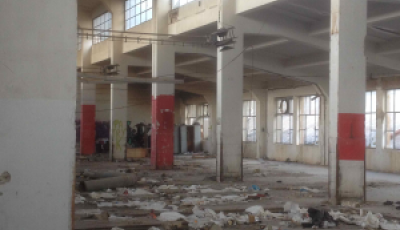Guest post by Alessandro Monsutti, Associate Professor in the Department of Anthropology and Sociology of Development, The Graduate Institute, Geneva. This post is the fourth installment of the Border Criminologies Themed Week on the Migrant Crisis in Greece organised by Angeliki Dimitriadi.
During the last three decades, Afghans have consistently constituted one of the single largest groups of asylum seekers in Europe. The UNHCR commissioned a team of researchers composed of Antonio Donini, Giulia Scalettaris, and myself to conduct, between autumn 2014 and spring 2015, a study of the situation of Afghans in various European countries. My colleagues visited Italy, Bulgaria, Serbia, Hungary, and Sweden, while I went to Greece.
I was warmly welcomed in Athens by the protection team of the UN agency for refugees, even as I felt perplexed about the added value of my sociological perspective. They explained to me the current reform of the Greek asylum procedure, undertaken to comply with EU requirements. I was astonished to learned that the recognition rate for Afghan applicants leaped from less than 1% to more than 60%.

In Patras, I was invited to visit two abandoned factories where they spend their nights. The living conditions are appalling. ‘What was your hope? What were your expectations?’ I ask. ‘A new life!’ exclaims Husain, 17 years old, whose brother was killed the previous year in a sectarian ambush in the Pakistani city of Quetta. My interlocutors mention simple but fundamental things: access to education, the possibility of having a family, not being insulted in the street because they are from Afghanistan, not fearing for life because they are a Shiite.
When I ask them if this is what they now have, they shake their heads with empty eyes. ‘It is not how we imagined Europe, for sure!’ But at the end of this terrible journey, they hope to get access to opportunities they couldn’t dream about in Afghanistan, Pakistan, or Iran; they imagine marrying a young girl from their village of origin, and bringing her and possibly their aging parents in Europe. Their trajectories will be cited to the younger generation as an example of achievement. I talk to Taher, a young man of 22 years from Ghazni Province. He calls his parents from time to time. ‘But it isn’t easy, you know! What can I say to my mother?’ He looks around him: ‘That I live on a pile of waste? That’s the tough part: lying to your family. So I tell them that we have found a nice room and have good food. But it is tricky. We should not raise their expectations either… they will start asking us to remit money back.’
These adolescents and young adults are ready to take risks and willing to repay―economically and socially―their families. For them, there’s no doubt: a successful migration means reaching the north of Europe. For them, the reform of the asylum system and the high chance to get a protection status in Greece are irrelevant. To understand their motivations and aspirations, it’s important to go beyond quasi-materialistic explanations stuck in security issues or a clear-cut dichotomy between political and economic causes.
There is a moral economy of migration that has a twofold dimension. Migration consists in the circulation of people and services, goods and money; it implies a social system of exchange and redistribution between young migrants and their relatives who stayed behind. But it’s imbued by a code of conduct implying mutual obligations and responsibilities, by a system of values and duties that defines what it means for these unaccompanied minors and young adults to be successful migrants and therefore good men.
Themed Week on the Migrant Crisis in Greece:
- Monday, 13 July: In Search of Hospitable Spaces in Times of Crises at the Margins of Europe (A. Dimitriadi)
- Tuesday, 14 July: Greece’s Other Crisis [is Europe’s Crisis] (S. Nanou)
- Wednesday, 15 July: Migrants Arriving in Athens: No Reception and No Place to Go (K. Kuschminder)
- Thursday, 16 July: The Moral Economy of Migration among Afghans in Europe (A. Monsutti)
- Friday, 17 July: No Welcome for Migrants and Refugees Landing in Greek Dodecanese Islands (S. Kyroussis)
Any thoughts about this post? Get in touch with us! Send us an email, or post a comment here or on Facebook. You can also tweet us.
__________
How to cite this blog post (Harvard style):
Monsutti, A. (2015) The Moral Economy of Migration among Afghans in Europe. Available at: http://bordercriminologies.law.ox.ac.uk/moral-economy-of-migration/ (Accessed [date]).
Share:








